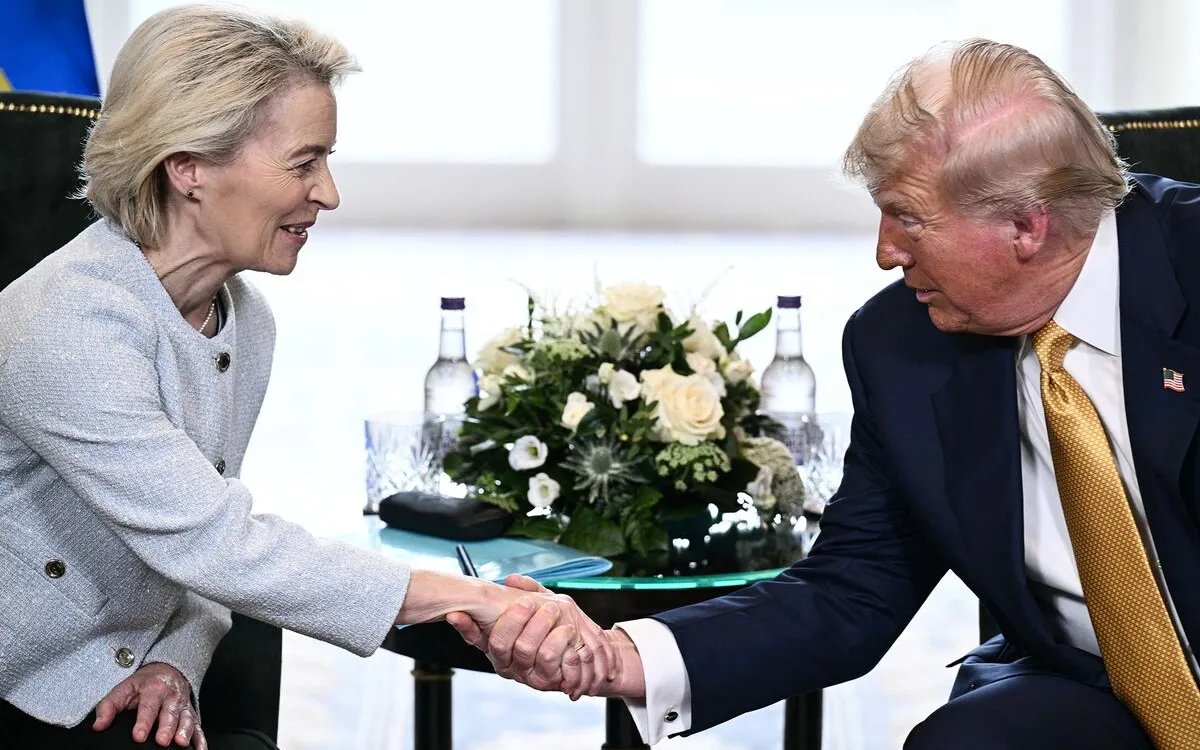
The United States and the European Union have successfully negotiated a crucial trade agreement that will prevent a potential trade war affecting the global economy. Under this new deal, the EU will face a 15% tariff on most of its exports to the US, including key sectors such as automobiles. This development comes just days before a critical deadline set by President Donald Trump for the implementation of higher tariffs.
Less than a week before the impending Friday deadline, this agreement was reached amid escalating tensions between the two economic powerhouses. In May, President Trump had threatened to impose a daunting 50% duty on nearly all EU goods, a move that raised alarms about a potential trade war that could severely impact global trade dynamics. The pressure from this threat catalyzed swift negotiations, leading to a compromise that saw the proposed tariff rate significantly reduced to 30% before settling at the current 15%.
This trade agreement is seen as a significant step in stabilizing international trade relations. The agreed-upon tariffs will likely affect various industries, with the automobile sector being one of the most impacted. By averting a trade war, the US and EU aim to foster a more cooperative economic environment, which is essential for the recovery and growth of the global economy.
In conclusion, the recent trade agreement between the US and the European Union represents a pivotal move to avoid a trade escalation that could have had dire consequences for the world economy. By agreeing to a 15% tariff on exports, both parties have taken a significant step toward maintaining stable trade relations and promoting economic prosperity.